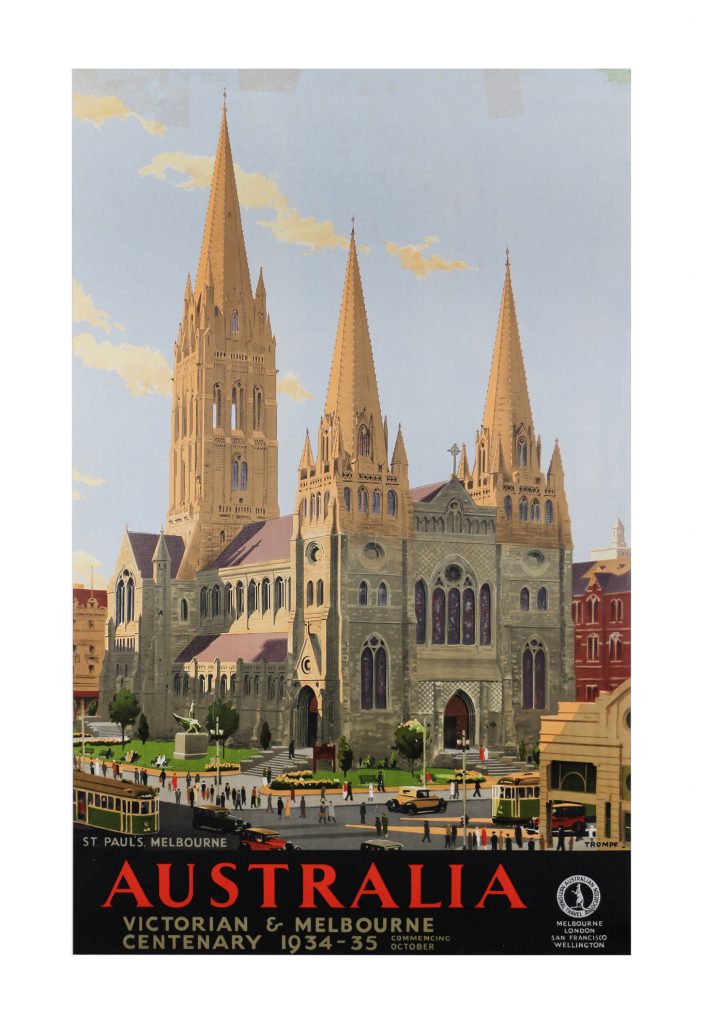Percy Trompf, Victorian & Melbourne Centenary, Australian National Travel Association, poster, 1934–35
Summary
By the time commercial artist Percy Trompf (1902–64) illustrated this poster, celebrating the centenary of Melbourne in 1935 (one of two in the collection), he had already gained an international reputation for his distinctive poster style, even winning an annual industrial poster competition awarded by the Royal College of the Arts, London, in 1934. His widely recognised travel posters for the Australian National Travel Association (of which this is one) and the Victorian Railways are strong, optimistic representations of modernising Australia, emerging from the not-so-distant dark years of the Depression. They express both consummate technical skill and an idealised vision of the fledgling interwar nation.
Trompf’s posters generally feature simple narratives, bold colours, strong light and dramatic elements. This poster showing St Paul's Cathedral reflects this well, the cathedral a confidently soaring edifice signalling the southern capital’s Anglo identity and architectural heritage. But the second poster in the collection is more complex, presenting an historical narrative that is fraught from the perspective of our own time. In this, the ghostly figure of a heroic John Batman stands on the banks of the Yarra, surveying the modern city across the waters, his famous words printed alongside: ‘this will be the place for a village’. Caught in the ideological bramble of its own time, it situates Batman as the beneficent father of Melbourne – with all traces of Aboriginality firmly erased – from whose founding efforts advancement was made.
